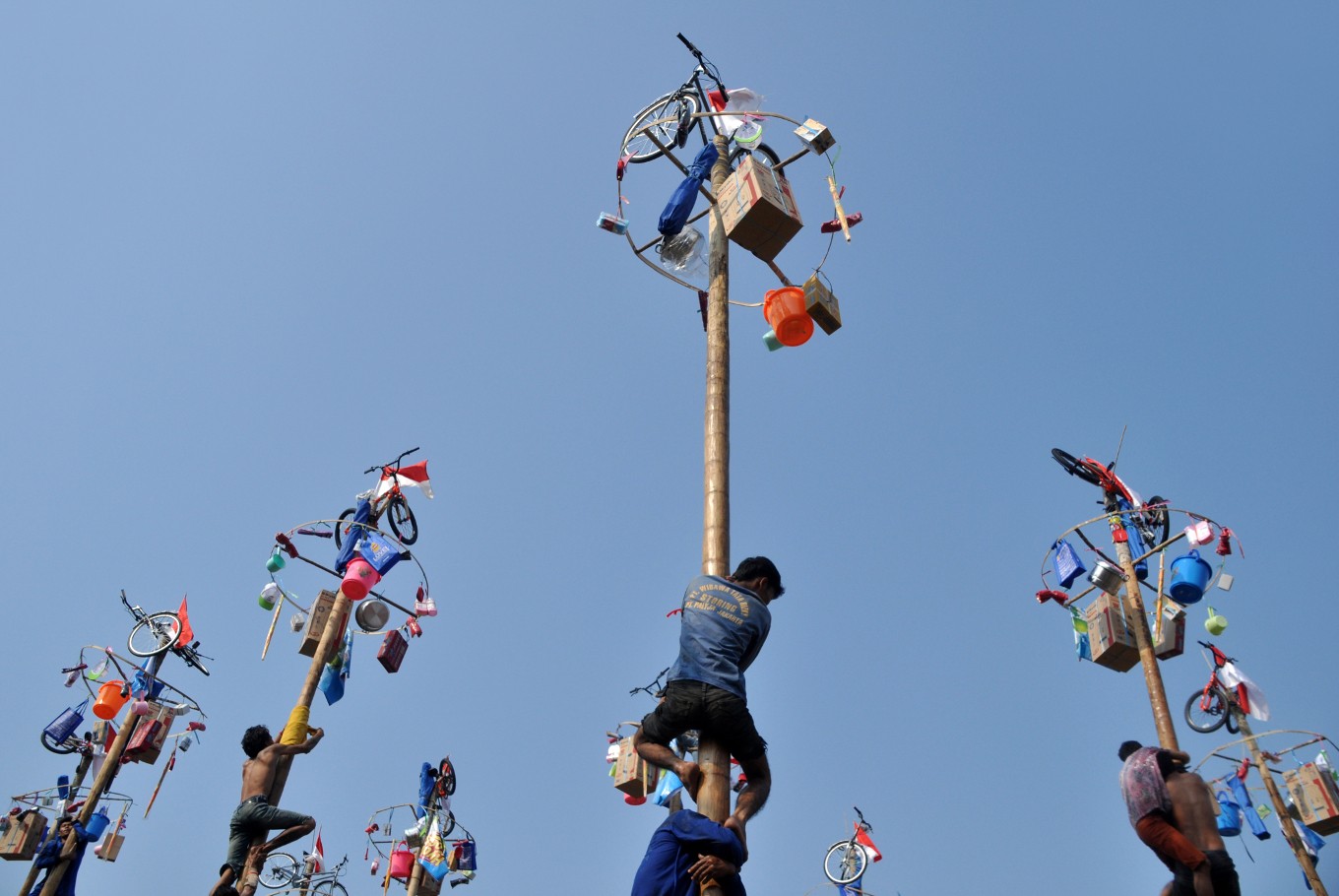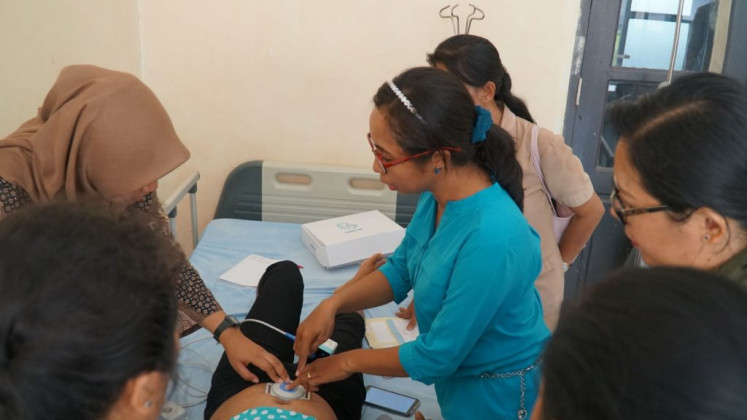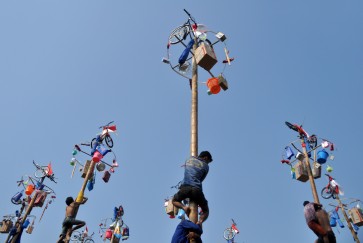Popular Reads
Top Results
Can't find what you're looking for?
View all search resultsPopular Reads
Top Results
Can't find what you're looking for?
View all search resultsHow studying 1945-1949 wars can benefit Indonesia
This research will not change the history of Indonesia, but the Dutch government needs it as part of its accountability to its people.
Change text size
Gift Premium Articles
to Anyone
 'Panjat pinang' (climbing the slippery pole) is one of the competitions that are held to celebrate Indonesia's Independence. One point in history Indonesia and the Netherlands cannot agree on is the date when Indonesia became independent. Indonesia declared its independence on Aug. 17, 1945, but the Dutch believe the transfer of sovereignty did not take place until Dec. 27, 1949. (shutterstock.com/dani daniar/File)
'Panjat pinang' (climbing the slippery pole) is one of the competitions that are held to celebrate Indonesia's Independence. One point in history Indonesia and the Netherlands cannot agree on is the date when Indonesia became independent. Indonesia declared its independence on Aug. 17, 1945, but the Dutch believe the transfer of sovereignty did not take place until Dec. 27, 1949. (shutterstock.com/dani daniar/File)
O
ne point in history Indonesia and the Netherlands cannot agree on is the date when Indonesia became independent. Indonesia declared its independence on Aug. 17, 1945, but the Dutch believe the transfer of sovereignty did not take place until Dec. 27, 1949. This is the reason why Indonesia considers the Dutch military attacks in a number of regions across Java in 1947 and 1948 military aggressions, while the Dutch call them police actions.
It is impossible to get the Netherlands to acknowledge the fact that Indonesia gained its freedom on Aug. 17, 1945, as that would mean considering activities of their forces in Indonesia between 1945 and 1949 war crimes. Let the two nations write this period of history differently and even contradictorily; the longstanding relationship between the two will not be at risk.
Meanwhile violence at the hands of Dutch troops in Rawagede in Bekasi, east of Jakarta, and in South Sulawesi (by captain Raymond Westerling) became the subject of court hearings in the Netherlands in 2011 and 2012 and prompted the Dutch government to issue an apology and pay damages to the families of those who suffered in the two incidents.
We should not forget, however, that the victims were considered Dutch subjects, since the violence erupted before Dec. 27, 1949. Attempts by the Committee of Dutch Debts of Honor or KUKB, chaired by Jeffry Pondaag, who stood up for survivors of the bloody incidents, must be appreciated, and keeping the work going would be a good thing.
Controversy surrounding the history resurfaced last November, when more than 100 Dutch and Indonesian nationals staged a protest, questioning a study into the period of 1947–1950.
Funded by the Dutch government, the research involves Indonesian historians. Some were anxious whether it would change the history of Indonesia; for instance, would the Dutch military aggression be referred to as only as police action?
The study titled “Decolonization, Violence and Wars in Indonesia, 1945–1950”, will be completed in 2021 and seeks to probe the conditions and extent of violence in conflicts occurring during Dutch military operations in Indonesia. Costing €4.1 million (US$5.11 million), it was commissioned to three research agencies in the Netherlands in collaboration with Gadjah Mada University (UGM) in Yogyakarta.

















